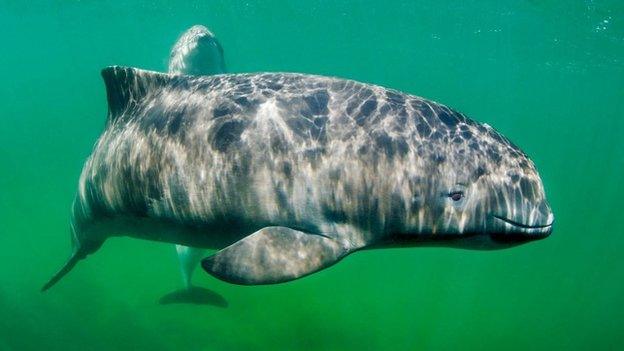Mexico bid to save world's smallest vaquita porpoise
- Published
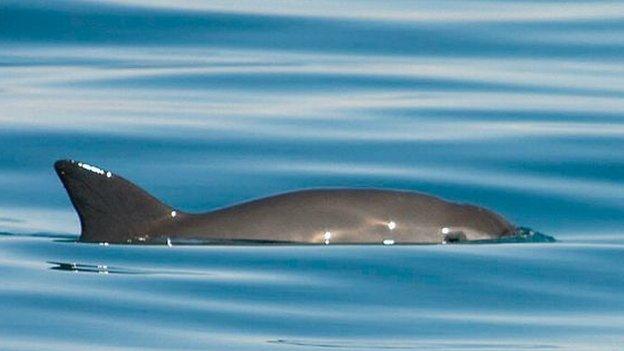
Mexican authorities and scientists are trying to save the world's smallest porpoise by capturing illegal "ghost" fishing nets.
They have managed to remove more than 100 dumped or lost nets left floating in the sea from October to December.
Local fishermen and conservationists helped to trawl 11,814km (7,340 miles) in the Gulf of California, the only area where the vaquita porpoise live.
Its population is estimated to be down to about 60 individuals.
Conservationists say they fear the porpoise will be extinct by 2022.
The main threat to the porpoise are the nets used to illegally catch fish known as the totoaba which is hunted for its swim bladder - fetching tens of thousands of dollars on the black market in China.
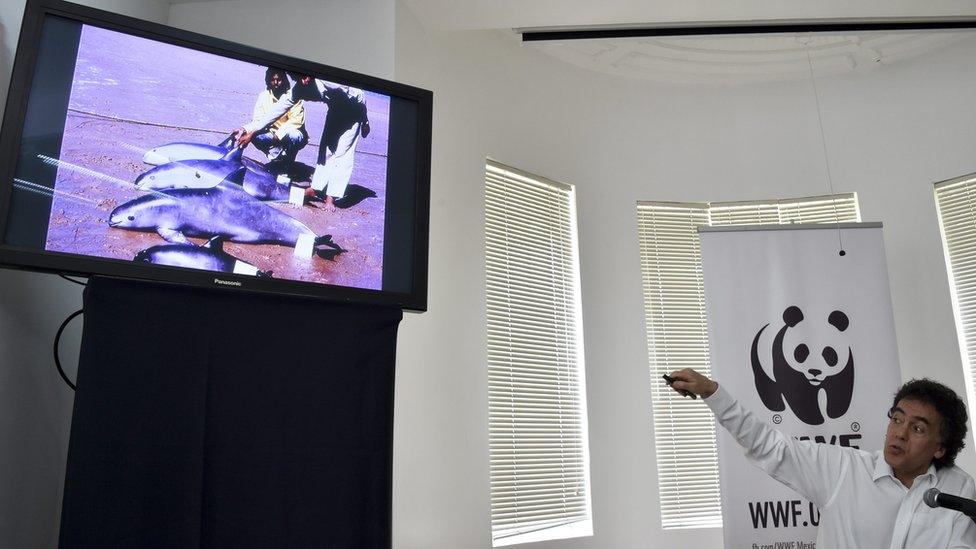
Conservationists want to launch a capture initiative to help the porpoises breed
The population of the vaquita marina porpoise has dropped despite government measures to prevent illegal fishing with the deployment of navy ships in April 2015.
It went from 200 in 2012 to fewer than 100 in 2014 and now stands at about 60, according to the International Committee for the Recovery of the Vaquita (CIRVA).
Drones equipped with high-resolution cameras have been used since July to try to spot any illegal movements.
'Panda of the sea'
Mexico's environment ministry said on Thursday they had removed 103 nets intended to catch totoaba, shark and other fish between 10 October and 7 December.
But conservationists want to go one step further and attempt to launch a capture programme in spring, says Lorenzo Rojas-Bracho, who chairs CIRVA.
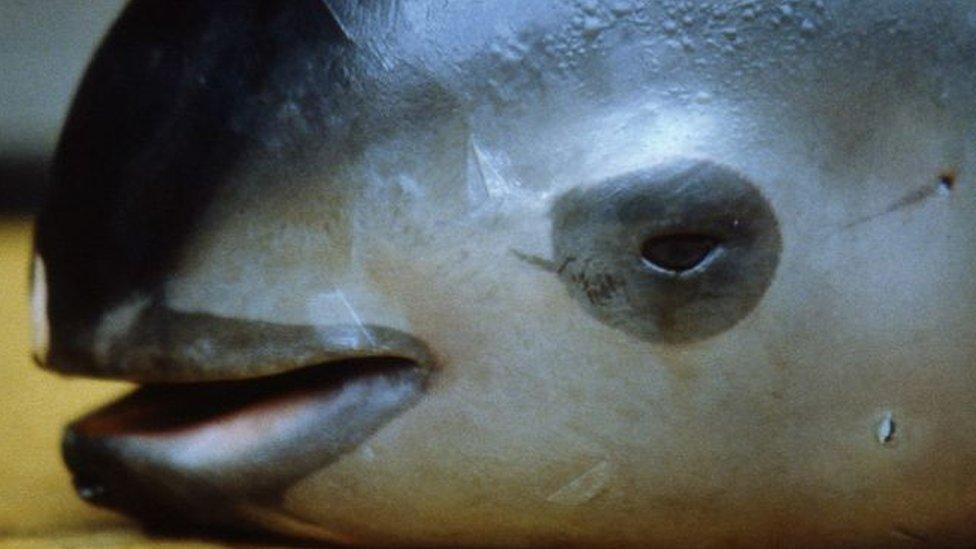
The hope is to make them reproduce in captivity in the gulf, "with the utmost care", he said.
"It would involve locating them, capturing them and putting them in some kind of protective area."
If successful, it would be the first time a vaquita porpoise has been captured alive.
At 1.5m (5ft) long, the porpoise has rarely been seen alive. It is known as the "panda of the sea" because of the dark rings around its eyes.
- Published25 September 2016
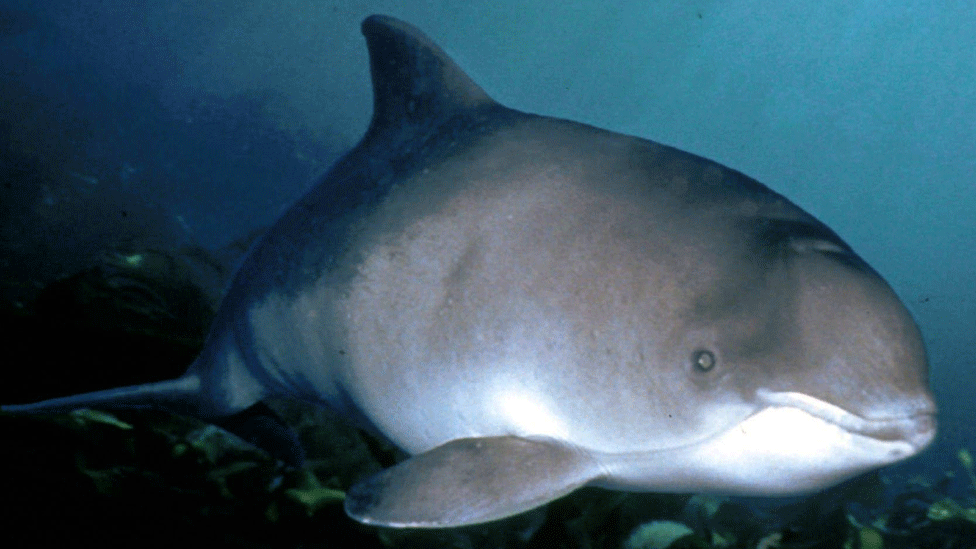
- Published30 March 2015
